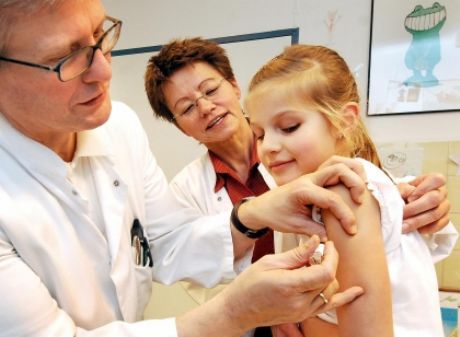Medical expert of the article
New publications
Teens are susceptible to hepatitis B despite vaccination
Last reviewed: 01.07.2025

All iLive content is medically reviewed or fact checked to ensure as much factual accuracy as possible.
We have strict sourcing guidelines and only link to reputable media sites, academic research institutions and, whenever possible, medically peer reviewed studies. Note that the numbers in parentheses ([1], [2], etc.) are clickable links to these studies.
If you feel that any of our content is inaccurate, out-of-date, or otherwise questionable, please select it and press Ctrl + Enter.
Research by scientists shows that a significant number of teenagers are vulnerable to the hepatitis B virus, despite the fact that they have been fully vaccinated.

Hepatitis B infection is one of the major global health problems, this infection has various forms and development features. The World Health Organization cites data according to which two billion people worldwide are infected with the hepatitis B virus, and 360 million people are chronic carriers of the hepatitis B surface antigen (HBsAg).
The U.S. Centers for Disease Control and Prevention says about 1.4 million Americans live with chronic hepatitis B.
The study was conducted in Taiwan. Scientists found that mother-to-child transmission of the virus (vertical transmission) is responsible for the majority of hepatitis B cases in that country. Chronic hepatitis B is a huge public health problem.
To combat this serious disease, in 1984 Taiwan launched the world's first vaccination program for newborns born to sick mothers.
" Chronic hepatitis B leads to liver cirrhosis, liver cancer (hepatocellular carcinoma) and liver failure, and shortens human life," said lead author Dr. Li-Yu Wang of Taipei Medical College in Taiwan. "While neonatal hepatitis vaccination is effective and shows good results, our study examines the long-term success of hepatitis B vaccination."
The study involved 8,733 schoolchildren born between July 1987 and July 1991 who had completed all stages of vaccination. The experts assessed the presence of HBsAg and anti-HBs in their bodies – markers of hepatitis B, which indicate the presence or absence of the virus in a person’s blood. The average age of the participants was sixteen years old and 53% of the group were boys. All participants attended a school in Hualien County, located in the eastern part of Taiwan.
Fifteen percent of children who received immunoglobulin in combination with vaccination were found to have hepatitis B surface antigen (HBsAg ), the main marker of acute and chronic hepatitis B, which was significantly higher than the number of children whose mothers were found to have HBsAg and who were fully vaccinated with immunoglobulin according to the schedule.
Previous studies by scientists have reported a reduction in the incidence of the disease among children due to an effective vaccination program.
The researchers also suggest that routine therapy during pregnancy may help reduce the risk of the baby becoming infected with the hepatitis B virus later in life. However, they stress that the safety and effectiveness of this type of therapy must be proven in large-scale studies before it can be recommended.

